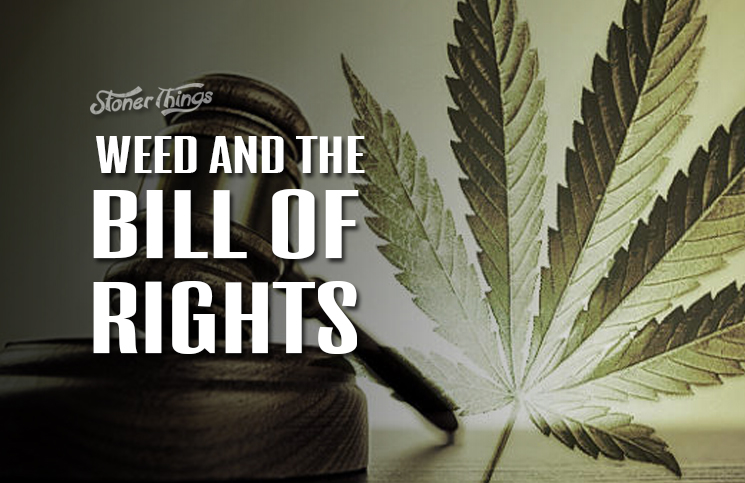Urban legend has it that the Bill of Rights was written on hemp paper. The reality is less clear-cut: While drafts of the Constitution and its initial amendments were probably written on hemp, the actual, official document was written on parchment, a treated form of animal skin. Parchment is not paper.
Still, the Bill of Rights provides many important protections to stoners. Without it, our freedoms would be trampled by the government. Here are the most important protections provided by the first 10 amendments.
The First Amendment: Expression
The courts ruled long ago that the federal and state governments have the power to regulate what we put in our bodies. Hence the FDA and DEA. However, the government can’t control what we say about our favorite drug.
This means advocacy groups are allowed to protest and push for reform even though most of their members routinely commit a federal crime. It also means you can say whatever you want about legalization and weed without interference from the government.
That said, it’s not wise to confess to a crime in public. Discussions of actual drug use could be used as evidence of guilt in court – though prosecutors usually must have additional evidence to convict.
The First Amendment: Religion
Sadly, courts in the United States refuse to acknowledge the ritualistic role that cannabis plays in some religious communities. Rastafarians, for example, believe marijuana helps adherents communicate with their deity, Jah.
That doesn’t mean it won’t happen someday soon, though. As Americans grow more accepting of pot, groups that use it in their sacred rites could gain new protections under the First Amendment.
The Second Amendment: Arms
There are relatively few intersections of gun rights and marijuana use. Some states refuse to issue firearms licenses to medical cannabis patients, but no serious challenge to those laws has been launched.
The feds actively try to keep guns away from the marijuana market, and that’s probably a good thing. Drugs and weapons rarely mix well, even where the weed is legal.
The Fourth Amendment: Search and Seizure
The Fourth Amendment protects against “unreasonable” search and seizure. Under this rule, the government must obtain a search warrant before inspecting your personal or business property.
To do this, police must have “probable cause” to believe you’re involved in a crime; this is more than the government needs to stop you on the street but less than it needs to convict you.
This applies to criminal property seizures as well, though unfortunately the government is still allowed to take property, through civil forfeiture, regardless of whether or not you’re actually guilty of a crime.
The Fifth Amendment: Due Process
The most relevant provisions in the Fifth Amendment provide stoners with due process should they be arrested. Specifically, it requires grand jury indictments for federal felonies, bans repeat convictions, and prevents prosecutors from forcing defendants to testify against themselves.
Your right not to incriminate yourself means you don’t have to talk to police who are investigating you. The less said, the better.
The grand jury protection isn’t terribly important unless you’re charged with a federal felony – and that’s usually reserved for traffickers and mass distributors. But the rule against double jeopardy matters because otherwise authorities could try a defendant repeatedly until they get a conviction.
The Sixth Amendment: Right to a Lawyer
The Sixth Amendment contains the final constitutional protection for stoners. It preserves the right to a lawyer in any criminal proceeding. It also requires the government to provide speedy trials, explain criminal charges, and allow defendants to confront their accusers in court.
Finally, the Sixth Amendment gives defendants the power to compel testimony in their favor. This means you can call character witnesses and present any evidence that exonerates you.
The promise of a lawyer is the most critical element of the Sixth Amendment. Without it, it would be easy for the government to convict people without allowing them to prepare a defense.













